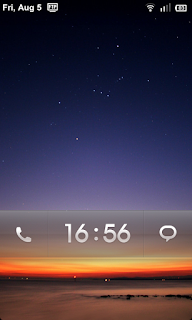David Elentok's Blog
Review: MIUI 2.3.4a on HTC Desire
About five months ago I bought an HTC Desire smartphone (it came with stock Android 2.2), at first I was very impressed but as time went by I started noticing a lot of annoyances:
- It required weekly reboots because it would get sluggish.
- Hebrew support was less than standard, I needed to install a third-party keyboard, Hebrew text was aligned to the left and numbers in Hebrew sentences appeared backwards ("123" would appear as "321").
- I couldn't use the Waze navigation application while playing music because the music would stutter.
I am very disappointed in google for releasing an operating system like this, I am used to much higher quality from google products.
I'm a programmer, I know it's nearly impossible to develop such a large application that runs on a vast range of hardware with zero bugs, but since they never release any updates, there's no hope for improvement. Unless you're willing to lose your warranty and install a custom ROM you're stuck with what you got.
Anyway, it took me about three months to snap and realize that I need to install a custom ROM. I started with CyanogenMod 7.0.3 (based on Android 2.3.3) which was a big improvement, much faster, out-of-the-box Hebrew supports and much more customizable.
After using CyanogenMod for a few weeks I started noticing some new annoyances:
- Due to a memory leak in Android 2.3.3 I needed to reboot every two or three days.
- Spontaneous reboots (once a day or two).
- Much faster than 2.2 but still gets sluggish after using it a day or two.
- The camera's flash would turn on spontaneously (yeah, CyanogenMod is very spontaneous...).
- The data connections disconnected every hour or so, and then I needed to turn it off and on for it two work again.
Last week I installed MIUI 2.3.4a and was very impressed (but since I got burned before I decided to wait a week or two to see how it behaves in the long run).
So far I haven't had to reboot the device in over a week and it is still as fast as when it first booted, and there were no spontaneous reboots.
MIUI 2.3.4a is based on Android 2.3.4:
The people behind MIUI made a lot of changes to the default Android UI, they made it a little more iPhone-like.
For example, all of the applications are added the home screen by default (there is no applications menu). Don't worry you can still use widgets:
The dialer allows to search for contacts in a way similar to the HTC Sense's dialer, for example, by pressing "3, 2, 8" it will show me contacts that have "DAV, EAT, ..." in their names:
The lock screen has three unlock options: unlock, open dialer and open messaging app, and when you receive a call you have an option to reject it and send and SMS (directly from the lock screen):
In addition to the notifications in the notifications bar there are also "Toggles", this are toggle buttons that allow to turn various features on and off (Wifi, Data, GPS, ...). A useful extra feature is that a long press on one of the toggles open the settings page relevant to that toggle:
The built-in music player reminds me a lot of the iPhone/iPod Touch player:
It also comes with a built-in traffic monitor for Wifi/Data/Calls usage:
It also comes with a File Explorer, an FTP server, a notes application, and a clock that can set alarms that use songs from your music library as alarm sounds (CyanogenMod's alarm doesn't allow you to use songs from the music library).
The only thing that bugs me a little is that the camera's flash doesn't seem to work, but since I don't use the camera that much it (the Desire's camera is of low quality) it doesn't bother me that much.
One of the installation guides I used to install MIUI recommended to install the 5.14.05.17 baseband version, and since then there were no disconnections and Cellular and GPS reception has improved.
Also, there is a fully Hebrew translation package at http://hebmiui.com/
To sum things up, MIUI seems to be very stable, very quick, normal battery usage and very comfortable UI and I'm having a far better experience than the previous ROMs I have tried.
So thank you MIUI developers, wherever you are and well done on a great job!







